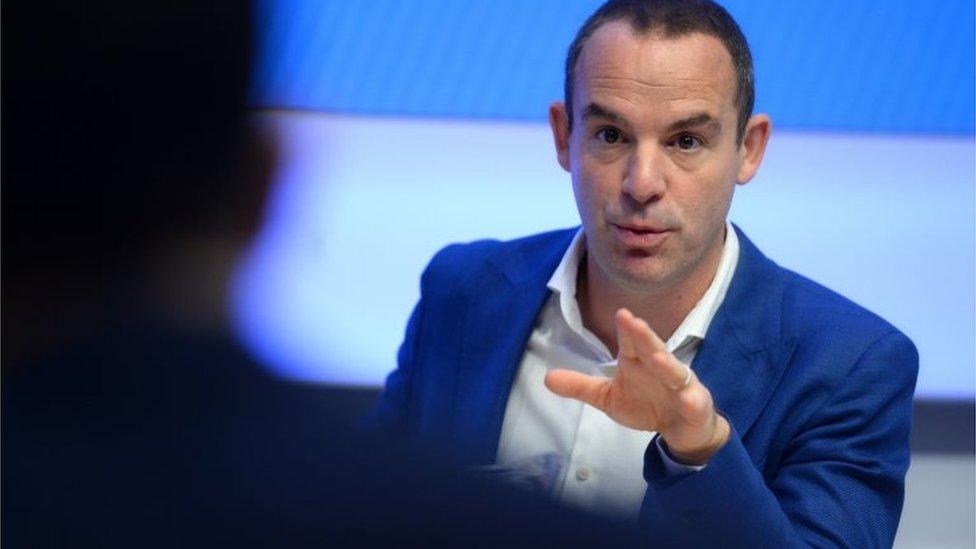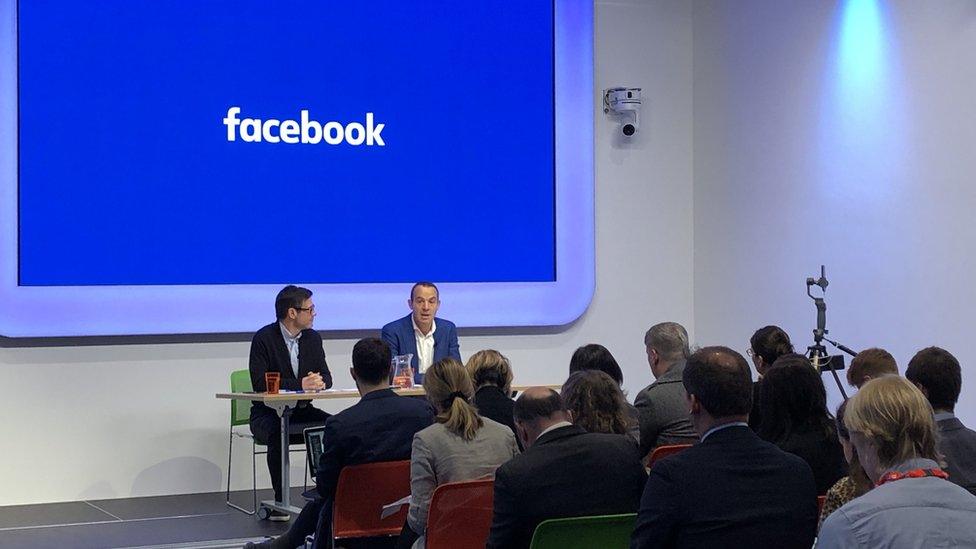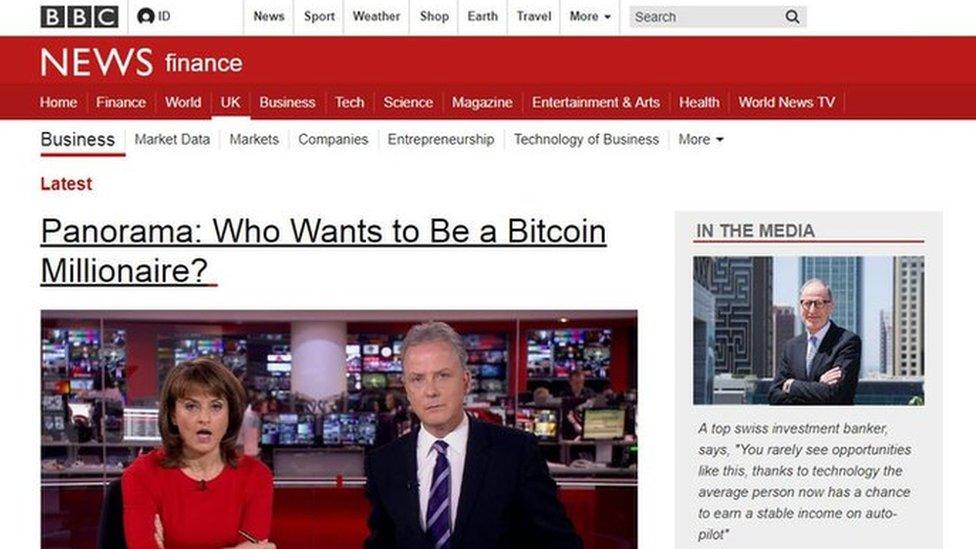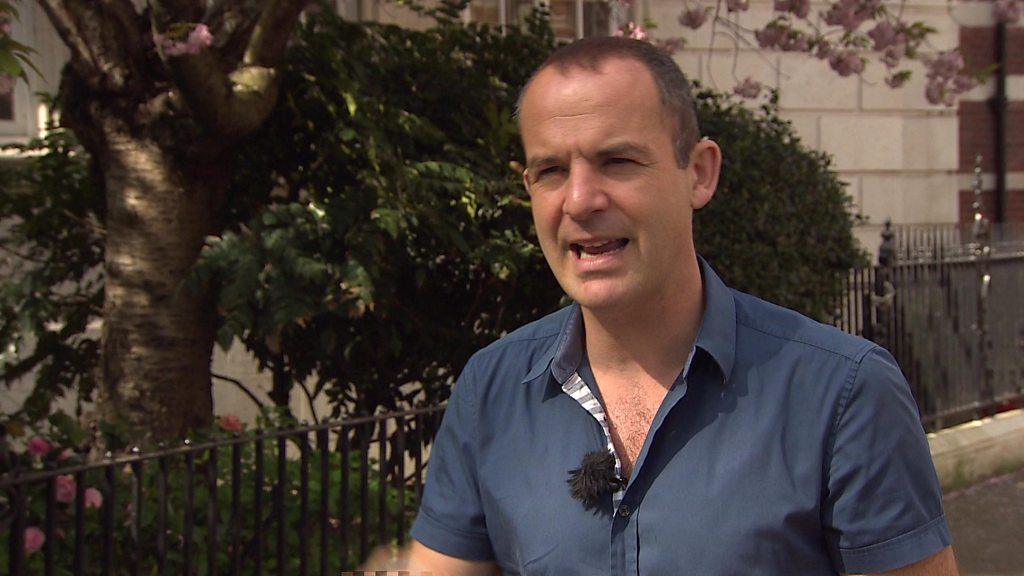Martin Lewis drops legal case after Facebook pledges to tackle fake ads
- Published

Mr Lewis announced his intention to sue Facebook in April 2018
Consumer campaigner Martin Lewis has dropped his legal action against Facebook over a series of ads that ran on its platform, falsely claiming he backed several investment schemes.
The MoneySavingExpert website founder had claimed the fake endorsements had caused him reputational damage.
He said he had dropped the case, external because Facebook had agreed to introduce a scam ads reporting button.
As part of the deal, Facebook will also give £3m to Citizens Advice.
The organisation will use the money for a scheme to identify and fight online scams and support their victims.
The project is set to launch in May.
It will include work to develop tools to help the public identify such fraudulent activity.
Facebook's investment will be made over a three-year period and consist of £2.5m in cash and a further £500,000 worth of advertising credit.
"The amount being donated to set up the Citizens Advice scams action project is far above anything I could've won had I succeeded in a court," Mr Lewis said in a statement.
"The aim of my campaigning lawsuit was always to stop scam ads and to help those who have fallen victim to them.
"What we're announcing today does that at a far bigger scale than I could've hoped for."
Risky bets
Mr Lewis announced his decision at a joint press conference with Facebook in London, which was live-streamed on Facebook., external


These adverts were among several that appeared on Facebook
He said that more than 1,000 bogus adverts had appeared on Facebook bearing his image and/or name.
Some of these had pictured him giving advice on ITV's This Morning programme, while others bore the BBC logo as part of efforts to give the schemes credibility.
Several claimed to involve crypto-currency speculation but Mr Lewis said they were often fronts for binary trading companies based outside of the EU, which the public would be ill advised to get involved with.
The Financial Conduct Authority (FCA) has warned consumers to be wary of binary option trading, external, saying it is a form of fixed-odds betting that typically results in losses.
Facebook had initially defended its role, saying it would deal with any ads brought to its attention that infringed Mr Lewis's rights.
But the campaigner accused the US company of being ineffective due to its reliance on user reports.

Mr Lewis and Facebook held a joint press conference at one of the US firm's London offices
At Wednesday's press conference, however, Mr Lewis said that after he had threatened to sue Facebook, the company had "quickly realised the scale of the problem" and agreed to commit resources to tackle the issue.
Facebook's new scam ad reporting button promises to make it easier for users to flag promotions they suspect to be scams.
The tech firm has pledged to support the service with a "dedicated internal operations team" whose job it will be to investigate the reports as well as to proactively identify related ad trends that amount to an abuse of its platforms.
Facebook's regional director for northern Europe, Steve Hatch, said: "We're grateful to Martin Lewis for bringing attention to this important issue and for his guidance over the last eight months."
Mr Lewis added that he hoped Google and other advertising platforms would also accept they needed to make improvements and should "put their hands in their pockets" to support Citizen Advice's work.
Related topics
- Published17 January 2019

- Published23 April 2018
- Published23 April 2018
